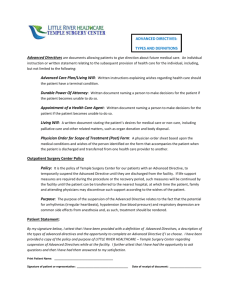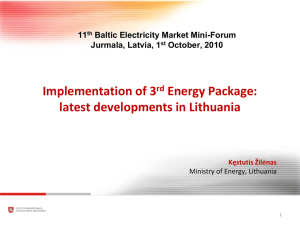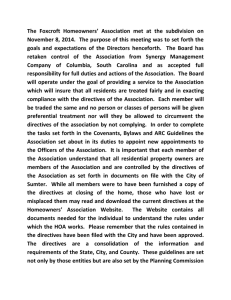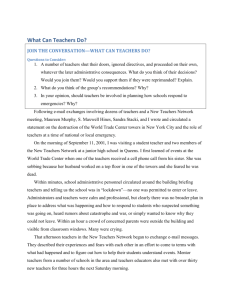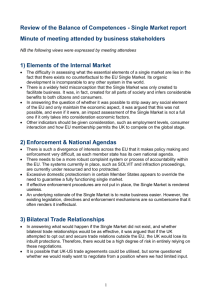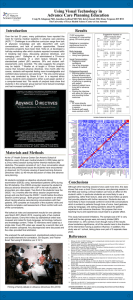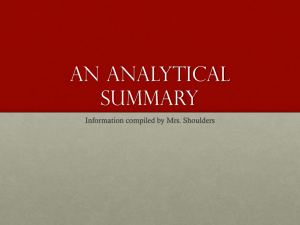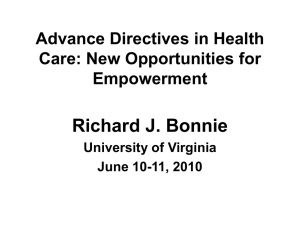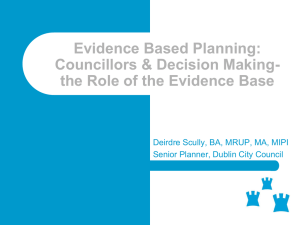2010-12 07-8-10 BPA Recommendations on Order 693 Directives
advertisement
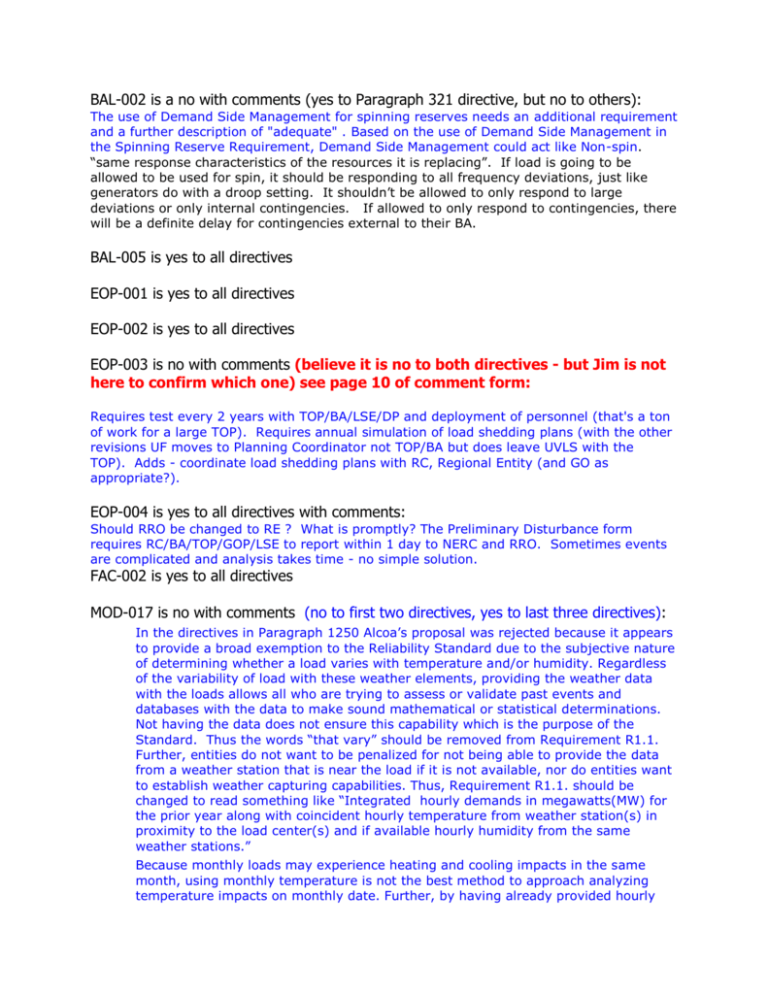
BAL-002 is a no with comments (yes to Paragraph 321 directive, but no to others): The use of Demand Side Management for spinning reserves needs an additional requirement and a further description of "adequate" . Based on the use of Demand Side Management in the Spinning Reserve Requirement, Demand Side Management could act like Non-spin. “same response characteristics of the resources it is replacing”. If load is going to be allowed to be used for spin, it should be responding to all frequency deviations, just like generators do with a droop setting. It shouldn’t be allowed to only respond to large deviations or only internal contingencies. If allowed to only respond to contingencies, there will be a definite delay for contingencies external to their BA. BAL-005 is yes to all directives EOP-001 is yes to all directives EOP-002 is yes to all directives EOP-003 is no with comments (believe it is no to both directives - but Jim is not here to confirm which one) see page 10 of comment form: Requires test every 2 years with TOP/BA/LSE/DP and deployment of personnel (that's a ton of work for a large TOP). Requires annual simulation of load shedding plans (with the other revisions UF moves to Planning Coordinator not TOP/BA but does leave UVLS with the TOP). Adds - coordinate load shedding plans with RC, Regional Entity (and GO as appropriate?). EOP-004 is yes to all directives with comments: Should RRO be changed to RE ? What is promptly? The Preliminary Disturbance form requires RC/BA/TOP/GOP/LSE to report within 1 day to NERC and RRO. Sometimes events are complicated and analysis takes time - no simple solution. FAC-002 is yes to all directives MOD-017 is no with comments (no to first two directives, yes to last three directives): In the directives in Paragraph 1250 Alcoa’s proposal was rejected because it appears to provide a broad exemption to the Reliability Standard due to the subjective nature of determining whether a load varies with temperature and/or humidity. Regardless of the variability of load with these weather elements, providing the weather data with the loads allows all who are trying to assess or validate past events and databases with the data to make sound mathematical or statistical determinations. Not having the data does not ensure this capability which is the purpose of the Standard. Thus the words “that vary” should be removed from Requirement R1.1. Further, entities do not want to be penalized for not being able to provide the data from a weather station that is near the load if it is not available, nor do entities want to establish weather capturing capabilities. Thus, Requirement R1.1. should be changed to read something like “Integrated hourly demands in megawatts(MW) for the prior year along with coincident hourly temperature from weather station(s) in proximity to the load center(s) and if available hourly humidity from the same weather stations.” Because monthly loads may experience heating and cooling impacts in the same month, using monthly temperature is not the best method to approach analyzing temperature impacts on monthly date. Further, by having already provided hourly weather data in Requirement 1.1 make the request for the monthly temperature data in Requirement 1.2 redundant and really worthless. Typically, the monthly analysis of energy and temperature is done using Heating and Cooling Degree Days(HDD/CDD). Any analyst should be able to calculate the necessary HDD and or CDD using the hourly data provided in Requirement 1.1 for the analysis. Requirement 1.2 should be changed to read something similar to this “Monthly and annual peak hour actual demands in MW and Net Energy for Load in gigawatthours (GWh) for the prior year. If hourly temperatures were not provided in Requirement 1.1 provide Heating and Cooling degree days base 65, and humidity data for the prior year from weather station(s) in proximity to the load center(s)”. MOD -019 is yes to all directives MOD-020 is yes to all directives MOD-021 is yes to all directives PRC-004-2 is yes to all directives with comments: The addition of LSE’s and TO’s was to be considered, but not necessarily accepted. The changes are acceptable but leave a little confusion about which misoperations each entity is required to address. See our proposed modification: Suggested wording for R1: The Transmission Owner and any entity listed below that individually or jointly owns a transmission Protection System shall analyze Misoperations of the transmission Protection Systems that it owns and shall develop and implement a Corrective Action Plan for those Misoperations according to the Regional Entity’s procedures to avoid future Misoperations of a similar nature. VAR-001-2 is yes to all directives Thanks to all of you for your quick turn around on this and for your patience while I pestered you to make sure I understood the comments. I'll be out of the office for the remainder of today and tomorrow, returning Monday morning.
